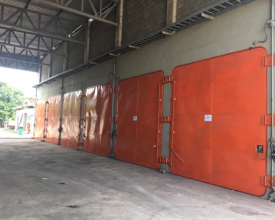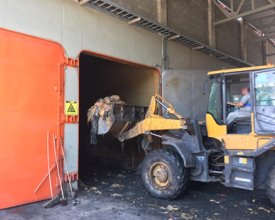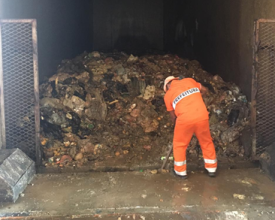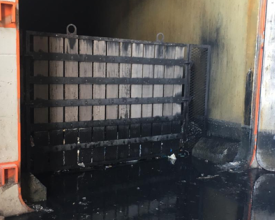Organic Solid Waste Treatment and Biogas Energy Use in Brazil
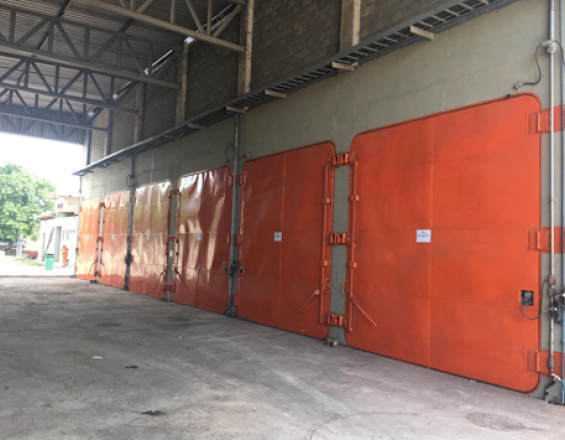
The organic waste methanization and biogas energy recovery unit is a 100% Brazilian technology implemented in the city of Rio de Janeiro. The system was developed to treat the organic fraction of municipal solid waste (FORSU) and organic waste segregated at the source (e.g., from large generators), converting this material into biogas, thermal and electrical energy, and biosolids for agricultural or energy use.
The plant has the capacity to treat 35 tons of waste per day, in a structure composed of seven tunnels, into which the waste is introduced with the help of a loading shovel. The technology developed is suitable for large and medium-sized cities, and the process of using waste to generate energy is one of the priorities in the current legal framework for sanitation and waste management.
Impacts
The biogas produced is converted into electrical and thermal energy, both of which guarantee the energy self-sufficiency of the methanization system, since the surplus is injected into the electrical grid. FORSU's methanization also results in a reduction of about 40% of the total mass of waste, which implies a reduction in transportation, landfill and leachate treatment costs.
The project enables the mitigation of GHG emissions, based on the substitution of electric power by renewable electricity. The next step will be to replace part of the diesel used in waste logistics with biomethane.
In addition to contributing directly to an adequate waste sanitation infrastructure, energy recovery from the biogas produced in the methanization system enables environmental and economic benefits that are fundamental to Rio de Janeiro's sustainability and resilience.

